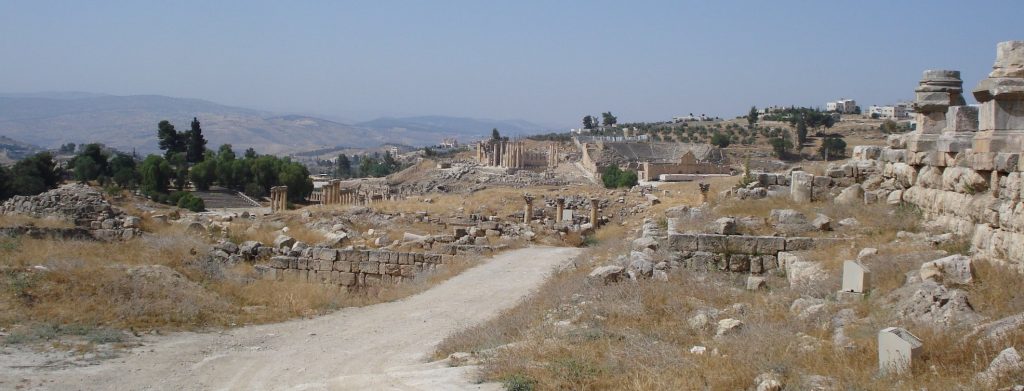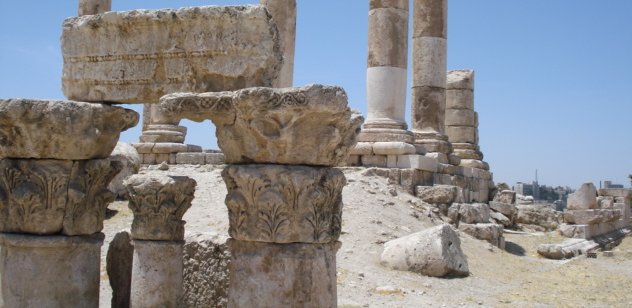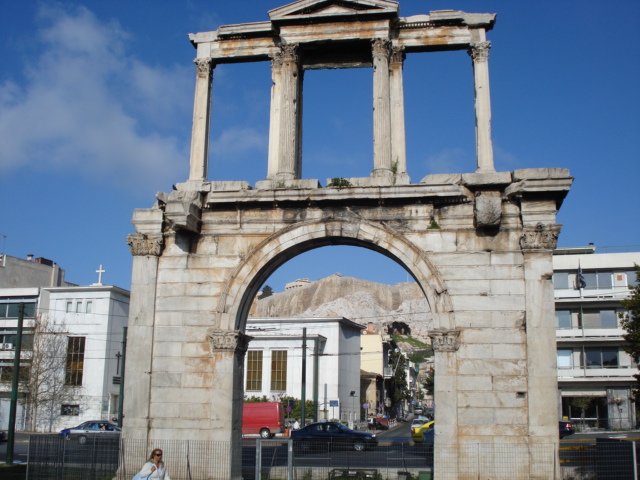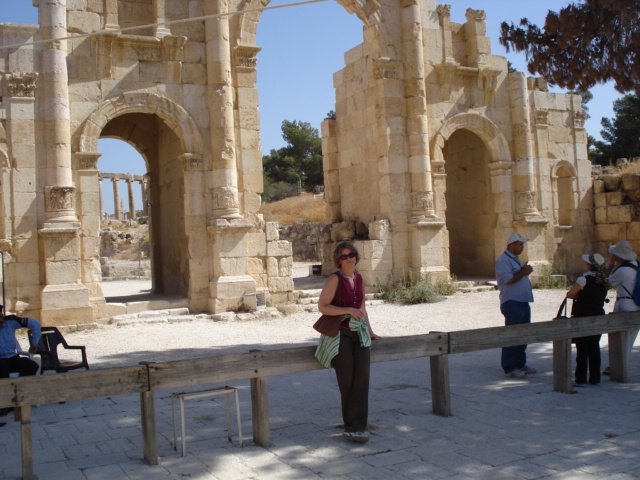
I took the car in for routine maintenance at Fairfax Honda. They always treat me well; however it takes time to get it done. But I didn’t really mind. I wandered over to Barnes & Noble across the street, bought a book – “Hadrian” by Anthony Everett – and for the price of a cup of coffee, and I suppose the book, got to sit and read in the Seattle Best coffee shop associated with the bookstore.

Anthony Everett specializes in biographies of famous Romans. I read his earlier books about Cicero and Augustus, so I figured this one would be good too. So far, so good. I haven’t really gotten that much about Hadrian yet. The author is talking about the Roman world, which is as interesting. He admits that it is hard to write a real biography of ancient people. The sources are just not that good and they tend to be sensationalized.

For example, the big biographer of the first “Twelve Caesars” is a guy called Suetonius. He wrote distant in time from his subjects, so he includes lots of gossip and legend. The stories you hear about Caligula and Nero probably come from him. In some ways ancient biography is like trying to get information from tabloids. I read parts of the “Secret History” by Procopius when I was in school. He writes about the Emperor Justinian and his wife Theodora, who had been a circus performer and maybe a prostitute before she met Justinian. Some of the parts are sort of like classical “Penthouse Diaries,” which is probably why these histories survived for more than a thousand years. I recall the line from one of those teenage films, that history is just the story of dead celebrities. That is not wrong.

Everett point out that some new, or at least overlooked sources of information about the life of Hadrian are those architectural monuments you see in the pictures. When Hadrian visited or caused them to be build, there was always an inscription marking the event. Modern scholars can follow in Hadrian’s footsteps by following the monument trail. Of course, archeology has its limits and is subject to significant interpretation. It can also tell you little of the person’s inner thoughts, which is what many people really want in a biography.
Hadrian has recently become much more interesting to some segments of modern society because he was gay, or at least bisexual. To many modern readers, establishing justice and sound administration in the world’s greatest empire takes a back seat to sexual preferences of a man now dead for 1800 years. I think this is the “history as dead celebrities” school. But anything that gets people exploring the classics is probably a good thing. Hadrian is one of my favorite emperors for equally venal reasons.
My mother bought me a Roman coin when I was ten or twelve years old. Alex has it now. It was a silver denarius from the time of Hadrian and featured his profile on the coin. Roman coins are less valuable than you might assume, BTW. (I think my mother paid around $10, which even in those distant days was not a great deal of money.) The Empires coin stampers made a lot of them w/o distinctions that excite collectors, such as dates and consistent mint marks. I suppose they are also easy to fake, although you can tell some fakes because they are smooth, like our coins today. Romans stamped their coins, i.e. the pounded them with hammers, so the real ones, and good copies, show the evidence of that. I was happy to have it, nevertheless. It put me in touch, I thought, with the brightest part of the golden age of the Roman Empire. I also have a “relationship” with Hadrian because of all his statues. He was a vain individual and, anyway, it was imperial policy to make a cult of the emperor. So you find his statues all over the place. I saw dozens in the “Roman” places I visited, such as Italy, Greece, Jordan & Egypt. Hadrian traveled all the time and evidently left a statue of himself wherever he went.
Although he was from a Roman family from Spain with some Carthaginian/Phoenician/African ancestry (the empire was becoming cosmopolitan) Greece was the place Hadrian came to admire most and he made Athens into a kind of spiritual capital of the Empire. You can still see the evidence of his largess in Athens today. Lots of what you think is classical around Greece is really from Roman times, or at least rebuilt by the Romans.
Everett talks a little about the ambivalent attitude Romans had toward Greeks, whose cleverness and sophistication they both admired and despised. This was no short term thing, BTW. It persisted for many centuries and ultimately was one of the dividing lines between the Eastern & Western Empires.
“Greece” in those days did not include only the little country we think of today. Most Greeks and certainly most people who aspired to Greek culture, lived in places like Sicily, North Africa, Asia Minor (now Turkey) and Syria. Alexandria, in Egypt, was a completely Greek city. Cleopatra was a Greek in ancestry, language & culture, descended from Ptolemy, one of Alexander the Great’s generals. Greeks of at least people who had become Greek in culture and outlook, ran the place from around 300 BC until around AD 700 when Muslim armies conquered them. Even after that, Greeks persisted until recently as merchants and craftsmen in Egypt and the Levant. Greek was the language of the whole Eastern Mediterranean, which is why the original language of the New Testament is Greek.
The world would not see anything like this kind of cosmopolitan culture again until the 20th Century, when English came to play the “world language” that Greek played.
Hadrian recognized the power of “Hellenism” and used it to strengthen the Empire. He was not the first or the only person to try to melt the Latin & the Greek cultures, but he was among the most effective. It is probably one of the reasons we call it Greco-Roman sometimes today.
I am a little ahead of myself. I have not finished the book yet. In fact, I have to put it off for a while. During this week I am doing “self-study” for my Brazilian-Portuguese. I have to keep up with Brazilian news and finish two books. One is relatively easy. It is “the Accidental President of Brazil” a memoir by Fernando Henrique Cardoso, who with his “Plano Real” was the individual most responsible for reforming Brazil into the very promising country we have today. It is a very easy and interesting book to read, and it is in English. I am learning a lot about modern Brazil from learning about Cardoso’s life experiences. My other book, “Brasil, País do Presente – O Poder Econômico do Gigante Verde” is much harder because it is in Portuguese. It is not difficult Portuguese and since it Is mostly about economics many of the words are familiar variations of English terms. Beyond that, the book is conveniently broken up into manageable sections, but it presents a challenge. I have to write up decent notes on both books by the end of this week, so Hadrian will have to wait. The pictures up top show Roman ruins in Jordan at the edge of the empire. The picture with Chrissy is one of Hadrian’s arches in that city, now called Jarash in Jordan, and the other one is Hadrian’s arch in Athens. You can see that he stuck with a kind of formula, but it worked for him. I was going to put in the pictures I took around Fairfax Honda, but I suppose I can post them separately. They don’t seem to fit the story.
